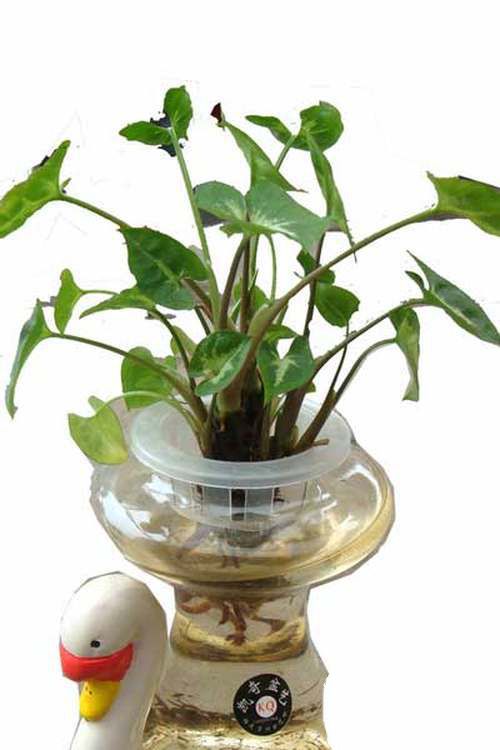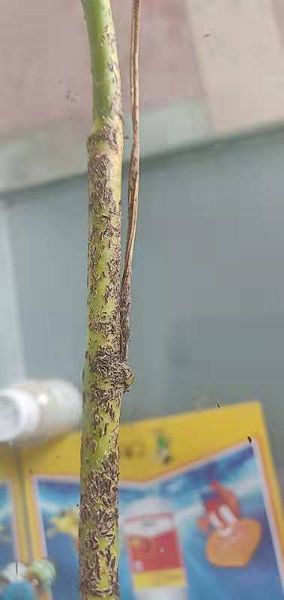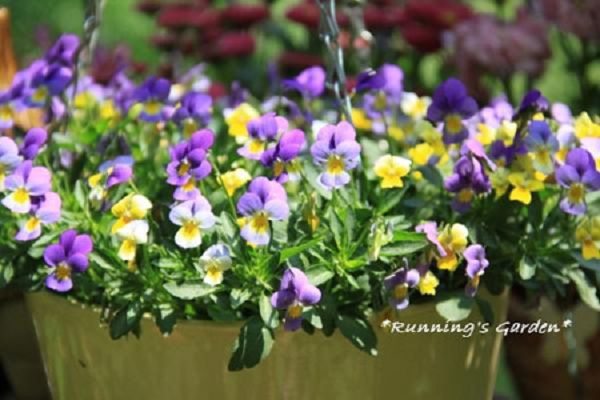Water exchange methods and daily maintenance guidelines for hydroponic flowers

1. Change the water regularly, and take the slightly turbid water in the hydroponic container as the principle of changing water. In general, the water is changed every 10 to 15 days in spring and autumn, about 5 days in summer and every 30 days in winter.
2. Each time the water is changed, the roots and containers of hydroponic flowers should be washed with clean water, and the dust on the leaves should be wiped with a wet cloth to keep the leaves clean, pruning withered branches, leaves and rotten roots.
3. When changing water, each liter of clear water (cold boiled water, mountain spring water, magnetized water and other water sources is better, if tap water needs to be clarified for more than 6 hours), add 4 bottle caps of hydroponic nutrient solution, and shake well, it can be used for hydroponic flowers.
4. When adding water, the number of flower roots immersed in water should not exceed 1 stroke 2, the rest of the roots should be left in the air of the hydroponic container, and keep the roots sagging naturally as much as possible; the water in the hydroponic container can be shaken in the future.
5. Pay attention to maintaining ventilation and require the place to be placed with a certain air humidity. If the air humidity is not enough, you can spray misty water into the air to increase the air humidity. Usually, you can spray a small amount of foggy water to the leaves, or wipe the flower leaves with a wet cloth to keep the leaves clean and dust-free.
6. Hydroponic flowers can generally be placed in offices, conference rooms, halls, coffee tables, computers, kitchens, bedrooms, living rooms, bathrooms and other indoor environments, as far as possible in places with plenty of indoor sunshine (that is, sunny places, scattered light is more), but to avoid direct sunlight and cold wind blowing.
7. The indoor temperature should be controlled between 8 ℃ and 30 ℃. If the temperature is too high, we can take air conditioning refrigeration, water spray, water curtain cooling and other means to reduce the temperature properly, at the same time, we must strengthen ventilation. In winter, we should pay attention to heat preservation and overwintering, often accept scattered light or direct sunlight, if you encounter extremely low temperature, you can use a heater to increase the ambient temperature, and you can also cover hydroponic flowers from top to bottom with thicker transparent plastic bags. and open 3 to 4 holes in the plastic bag to facilitate ventilation and prevent cold wind blowing.
8. If the rotten roots of hydroponic flowers are found in peacetime, they should be removed in time and thoroughly. That is, first cut off the rotten root from the root with clean branch shears, then disinfect the root with 0.5% potassium permanganate for 10 minutes, rinse it with clean water, and then use clear water (or magnetized water) to take planting basket fixed suspended water for 7 days and 15 days, and change water every two days. After growing new aquatic roots, you can add appropriate amount of nutrient solution to normal hydroponics.
9. If possible, 1% hydrogen peroxide (that is, 3% hydrogen peroxide) or 0.1% potassium permanganate are added to the hydroponic nutrient solution to facilitate the release of oxygen or inhibit the growth of harmful bacteria and algae in the water; of course, a small amount of microbial fertilizer or activated carbon can also be added to the hydroponic nutrient solution to improve water quality and make it more conducive to plant root absorption.
Related
- What if the leaves of potted flowers turn yellow?
- Florescence Control of several Flowers
- Anti-freezing technology and post-freezing nursing technology of flowers
- What is the classification of flowers? What are the common methods of flower classification?
- Prevention and control of alkali and acid damage of flowers in courtyard
- Technology of Anti-freezing and restoring growth of Flower seedlings in greenhouse and greenhouse
- How does flower fertilization not hurt the root? Fertilization technology of flowers
- Key points of disinfection in flower greenhouse
- Several pesticides that are banned or used cautiously in flowers
- How to fertilize the flowers that watch the leaves?



